Anger over Shropshire ambulance delay after mother's death
- Published
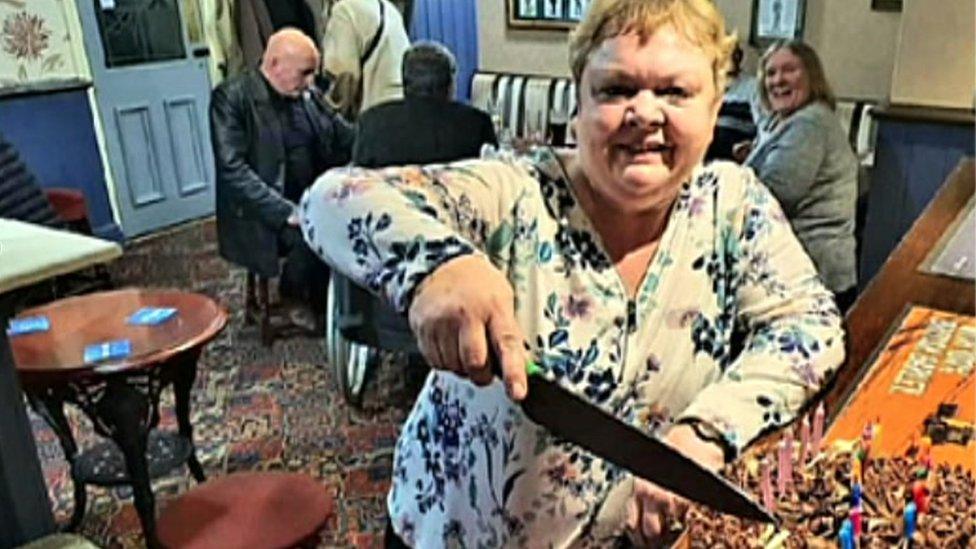
Sandra Francis died at her home in Shropshire in November after collapsing in her bathroom
A man who was left doing CPR on his mother for 35 minutes while waiting for an ambulance has called for a rethink over how crews are managed.
Sandra Francis, 66, had a suspected cardiac arrest and died at her home in Oswestry, Shropshire, in November.
She was one of 67 people in the West Midlands who died waiting for ambulance crews between September and January.
West Midlands Ambulance Service said the "root cause" of problems across the patch was hospital handover delays.
Wayne Francis said he had arrived at his parents' home early on 30 November to find his mother collapsed and his father in his wheelchair unable to help.
"She'd obviously had a heart attack. I checked her pulse and it was incredibly weak so I just went straight into CPR," he said.
"You know you're doing something right if you start cracking ribs.
"It was really hard work and quite traumatic.
"To hear my dad in the background wailing and screaming and crying because there's nothing he can do."
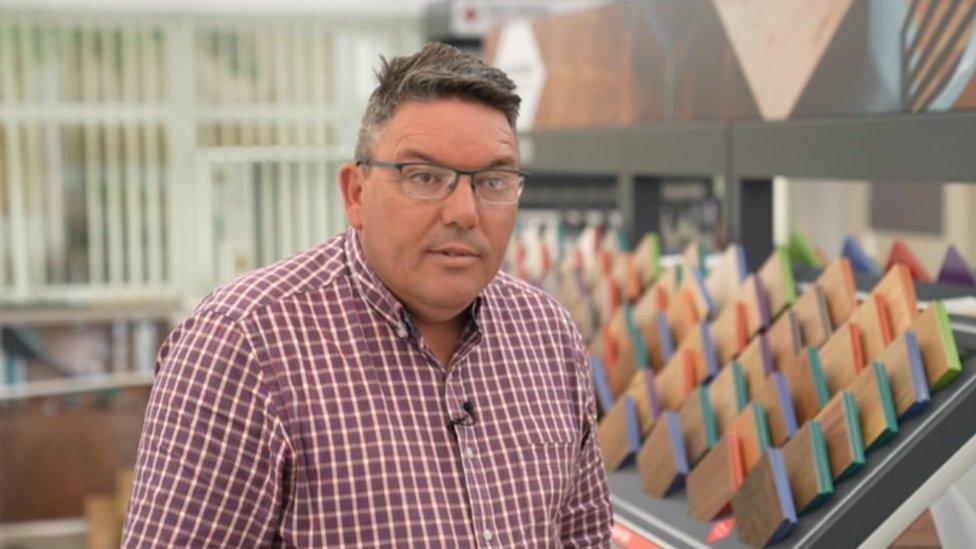
Wayne Francis said he had previously learned CPR
Mr Francis said he vividly remembered performing CPR while singing the Bee Gees' song Stayin' Alive in his head over and over again.
The situation was complicated by the fact a code given to his 16-year-old son to access a nearby defibrillator failed to work and he was left to smash the unit open.
The first 999 call was made by Wayne Francis's father at 06:23 GMT. Initially classed as a category two 999 call, it was quickly upgraded to a more serious category one case.
National targets say those patients should ideally be reached in seven minutes, and 90% of them should be reached within 15 minutes.
It was 07:01 when the first ambulance arrived at the Francis home, sent from about 40 miles away outside Craven Arms, at the other end of the county.
"Once they [the ambulance crew] took over they were absolutely fantastic," Mr Francis said.
Despite their hard work, he said the time it had taken to reach his mother meant they had always been facing an uphill battle.
An investigation into Mrs Francis's death found there was a community cardiac arrest responder three-and-a-half miles away, but that person was not sent as they were more than 10 minutes' drive away.
Cardiac Arrest Only volunteers are trained to deliver and use automatic defibrillators. In the event, there was a defibrillator nearby and it was not needed, as a coroner later found Mrs Francis died from a heart attack rather than cardiac arrest.
The investigation concluded the ambulance that was sent was the "closest in both time and distance".
"This is six o'clock in the morning on a Tuesday in November and they didn't have the resource to send out," Mr Francis said. "What is going on?"
"This is not a Friday/Saturday night."
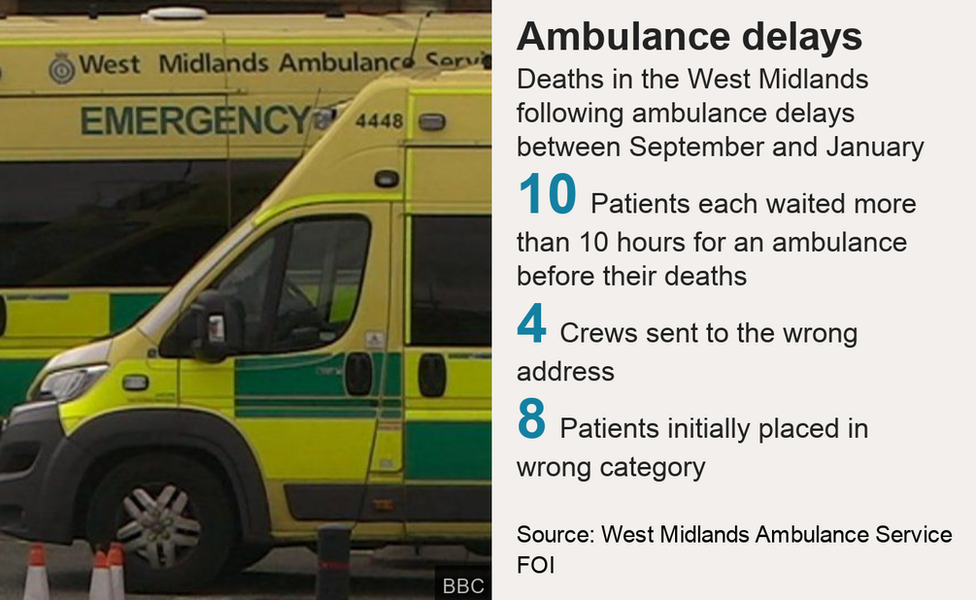
Intense pressure at the Shrewsbury and Telford Hospital NHS Trust has seen a string of critical incidents declared in recent months .
On the day Mrs Francis died, 52 of the 103 ambulances attending the trust's A&Es, external were left waiting more than an hour to hand over patients, tying up crews who would otherwise be available to respond to 999 calls.
According to the NHS, patients handovers should be completed in 15 minutes and none should be waiting more than 30 minutes.
Mobile 'waiting rooms'
"An ambulance should be a way of getting someone to hospital," Mr Francis said.
"It shouldn't be a waiting room sat at the hospital.
"How can they protect patients' lives if they're stuck in a car park waiting for a bed to come free?"
A West Midlands Ambulance Service spokesman said: "The root cause of the problem is the extensive hospital delays we have got across the whole of the West Midlands, which is probably the worst [area] in the country.
"West Midlands Ambulance Service prides itself on being the best performing ambulance service in terms of response times in the country.
"We're proud of our CQC Outstanding rating. But because of hospital delays, we're unable to get to patients in a timely fashion and on occasions unfortunately they are dying [before we get to them]."
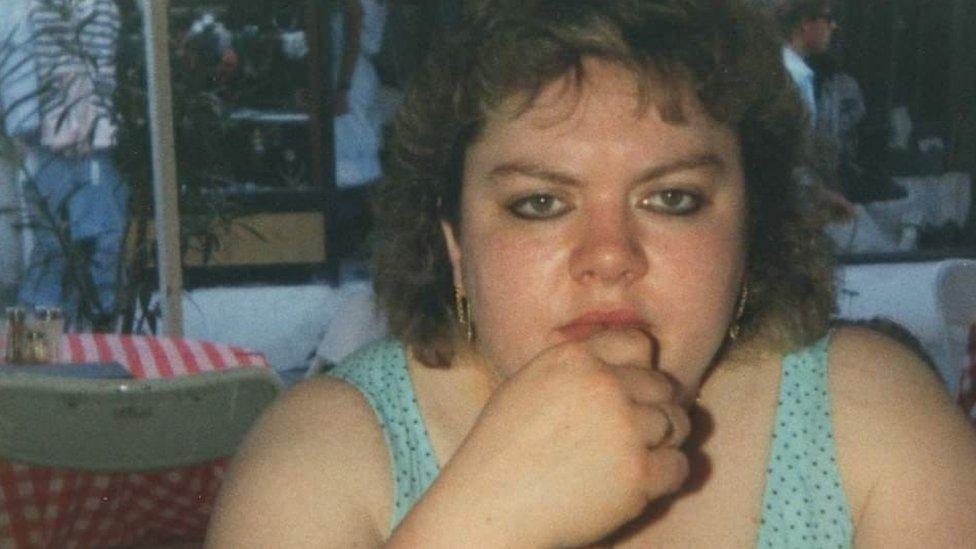
A serious incident report into Sandra Francis's death concluded the ambulance sent from some 40 miles away was the nearest available one at the time
Freedom of Information data from the ambulance service revealed that between September and January, of the 67 deaths, 10 involved patients waiting more than 10 hours.
The deaths included:
A patient in Ellesmere, Shropshire, who waited more than 12 hours with a ruptured bowel and died the following day
A patient with a brain haemorrhage who waited 13-and-a-half hours
A five-year-old from Redditch, Worcestershire, was classified as not requiring an ambulance but died two days later
The longest delay appears to have been 27 hours.
The data also shows not all deaths were due to ambulances being delayed outside hospitals.
There were four deaths where they crews were dispatched to the wrong address. On at least eight occasions, a call was wrongly categorised.
One child, not identified in the FOI data, exhibited breathing difficulties and later went into cardiac arrest at school in Birmingham in September. Three opportunities to upgrade to a category one case - the most urgent - were missed.
Crews on the West Midlands Ambulance Facebook site are constantly venting their frustration about being diverted from elderly frail patients, who have fallen and been left waiting, to what turn out to be "lesser jobs".
One paramedic wrote: "We were on our way to 90-year-old who had fallen and been waiting six hours. Caller was in severe pain… it was absolutely heartbreaking to be stood down."
Another stated: "Should an 18-year-old with a nose bleed supersede an 85-year-old with a fractured neck or femur because the computer says so?"

Follow BBC West Midlands on Facebook, external, Twitter, external and Instagram, external. Send your story ideas to: newsonline.westmidlands@bbc.co.uk, external
- Published12 May 2022
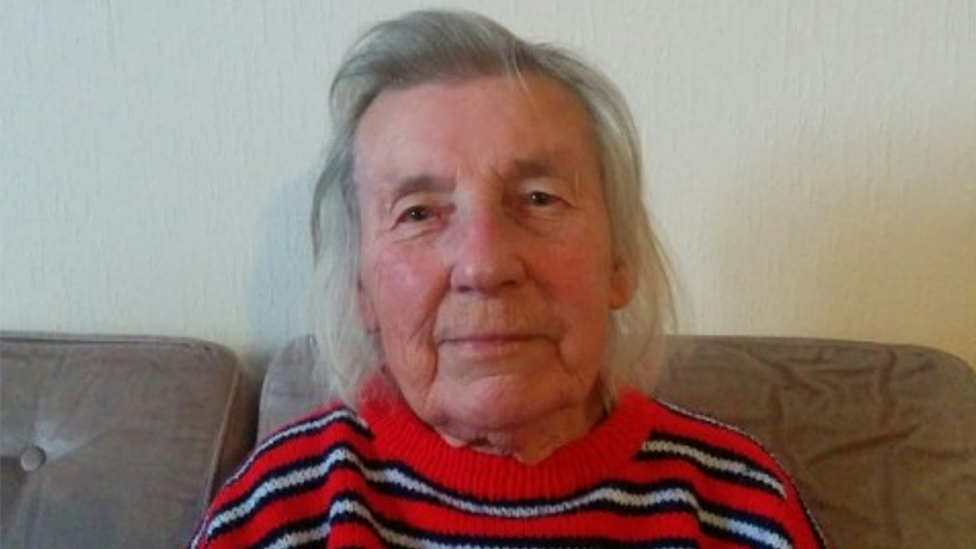
- Published6 April 2022
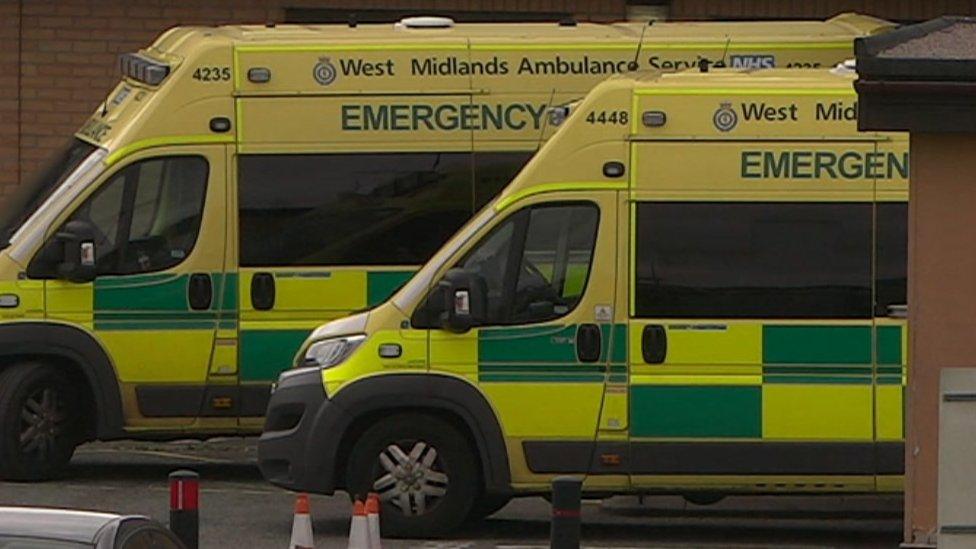
- Published31 March 2022
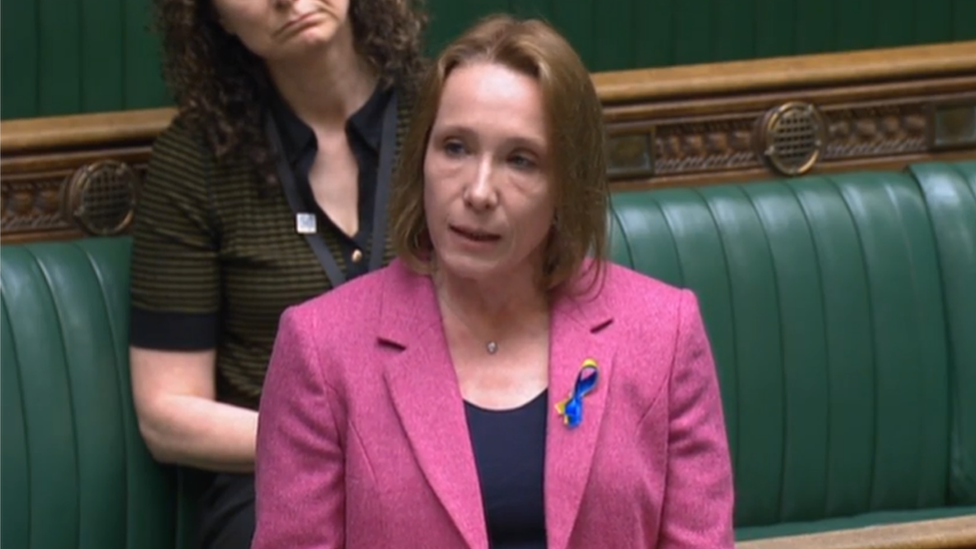
- Published5 March 2022
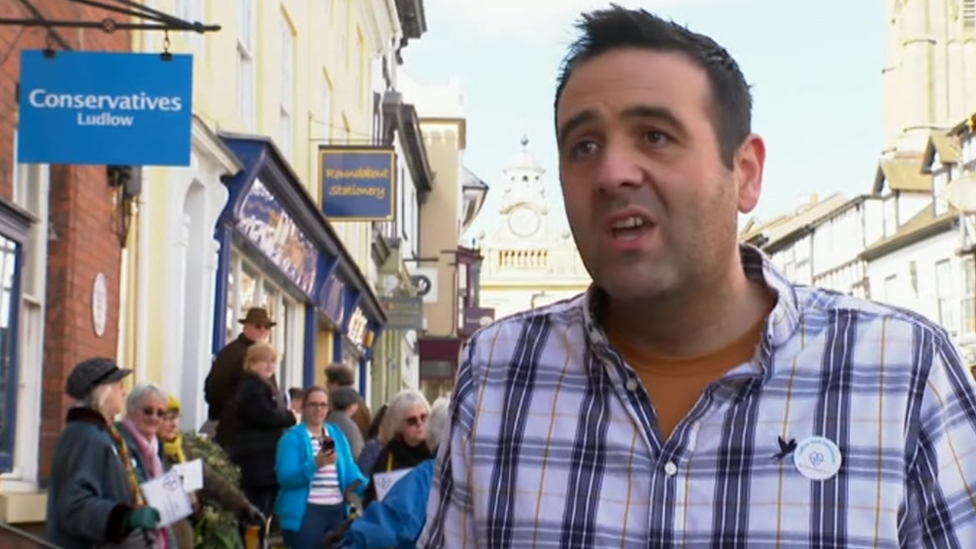
- Published27 January 2022
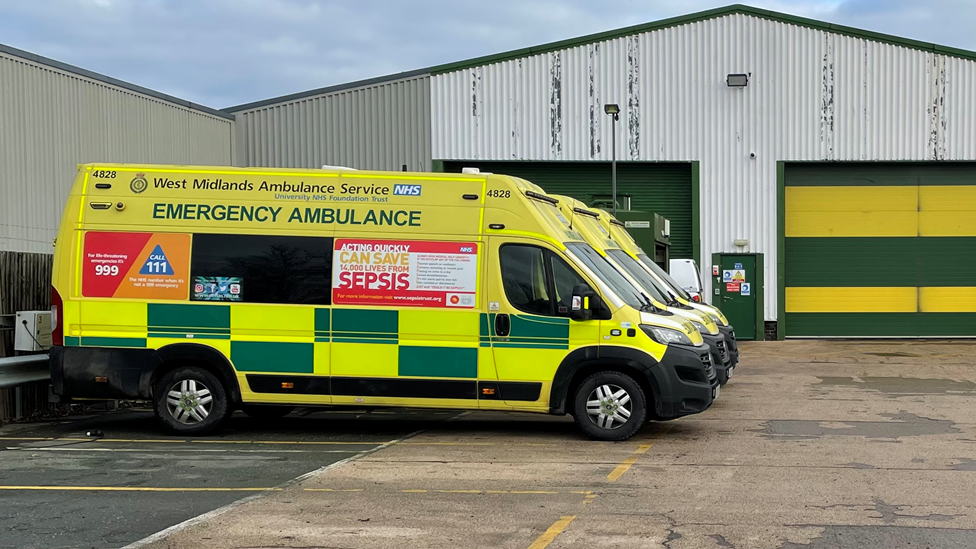
- Published20 January 2022
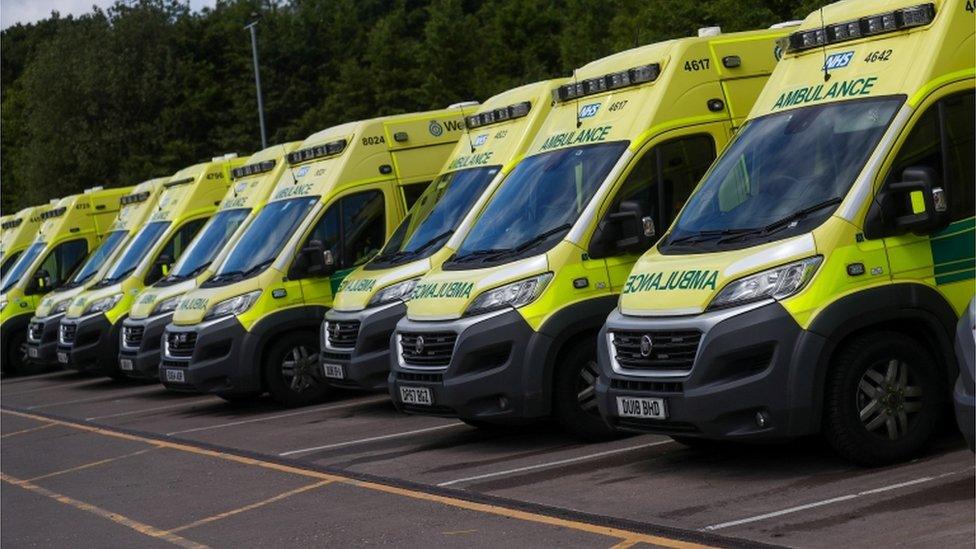
- Published18 January 2022
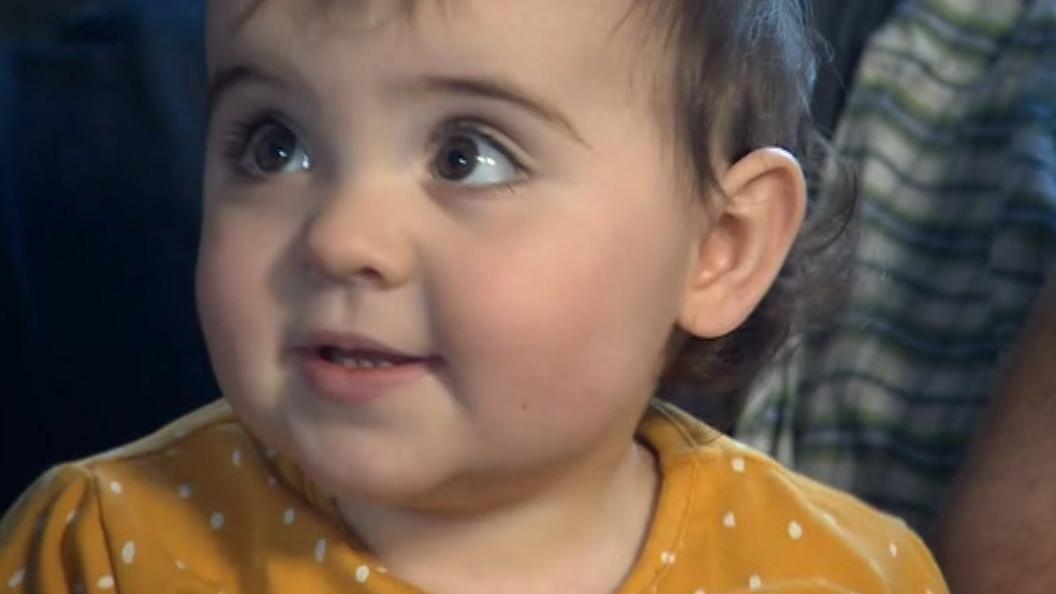
- Published14 January 2022
